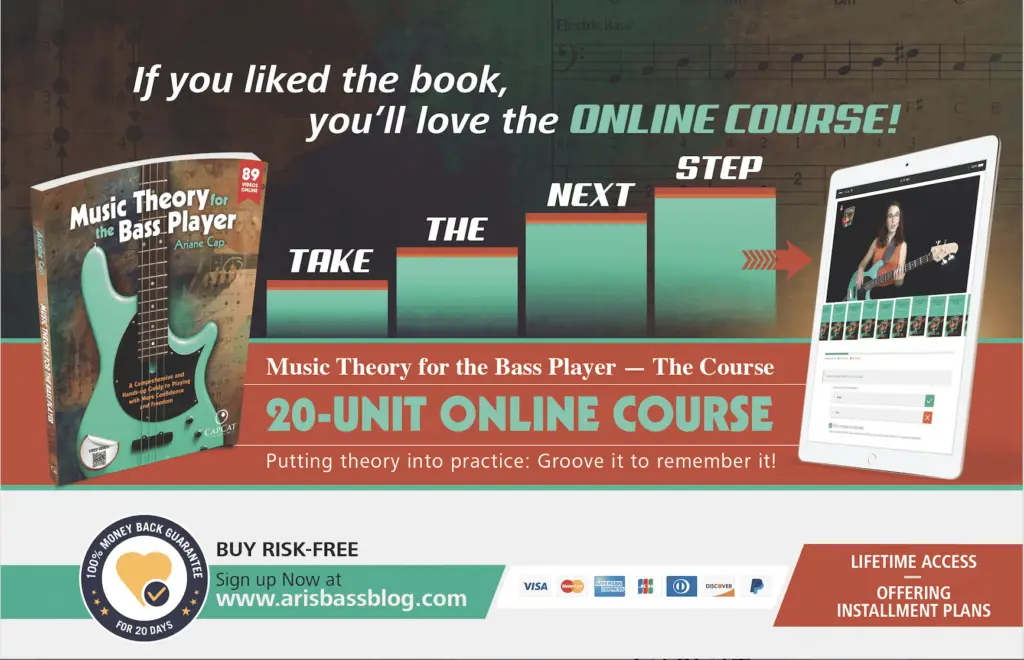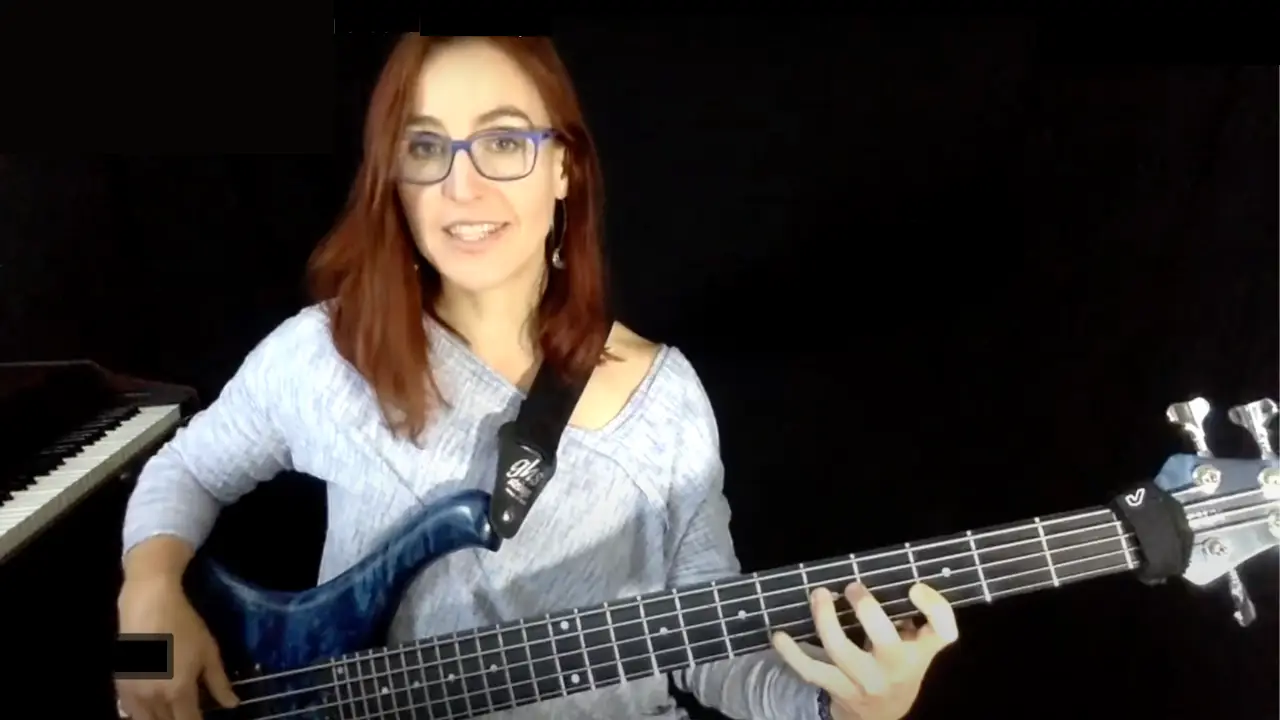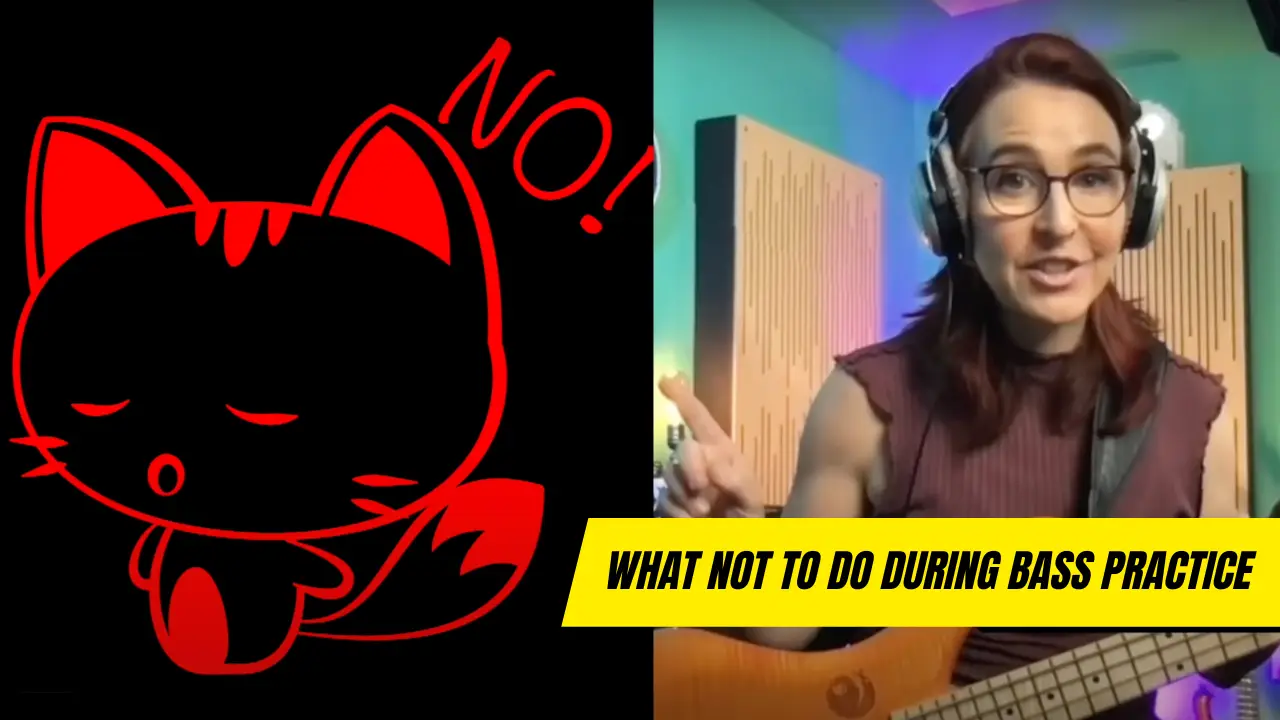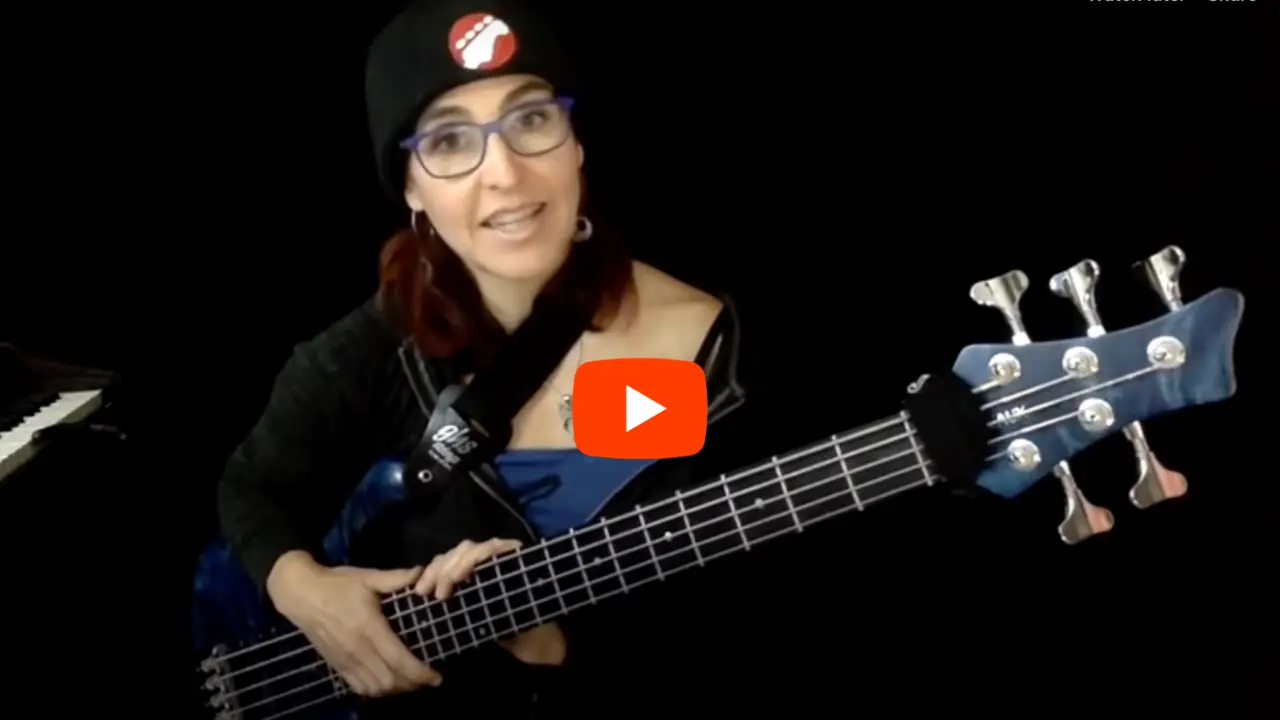Practice with a Purpose!
Related article: Why “Just keep playing is not working!”
 Are you a “weekend warrior” looking to up your game, but always pressed to find time to practice? Or maybe you’re just starting out and not sure where to begin when it comes to practicing? In both situations, you may find yourself playing the same familiar riffs and licks over and over; or cueing up your favorite playlist and doubling up the bass part during your “practice”. New bassists may feel a bit overwhelmed at the prospect of what they don’t know or can’t play yet, so similarly, may fall back on the familiar— the “fun stuff”. With a limited amount of time to practice, why not groove a little and have some fun, right?
Are you a “weekend warrior” looking to up your game, but always pressed to find time to practice? Or maybe you’re just starting out and not sure where to begin when it comes to practicing? In both situations, you may find yourself playing the same familiar riffs and licks over and over; or cueing up your favorite playlist and doubling up the bass part during your “practice”. New bassists may feel a bit overwhelmed at the prospect of what they don’t know or can’t play yet, so similarly, may fall back on the familiar— the “fun stuff”. With a limited amount of time to practice, why not groove a little and have some fun, right?
While there is certainly nothing “wrong” with that, practicing what you already know is not going to help you become a better player. And if that is your goal, it is crucial to map out a great plan of attack!
I have seen many students come through my door who have become quite decent players through “just playing songs”. But if you are looking for something more:
A New Approach for Real Results… Practice with a Purpose!
Here is where it gets a bit tricky, because if you are new to this it may be hard to find the right place to start.
Theory? Knowledge? Speed? Technique? Timing? Grooving? Or should you just buy a bunch of books and study Reading? How about Jazz studies? This shiny thing on youtube seems amazing, and so does that ebook that says Five Ways to Sound like Jaco in Three Days. No, wait, there is something on sale!
Distraction abounds. Decision paralysis soon follows.
So, what is one to do?
It sounds simple, almost too simple, but here it is: just start somewhere. Make a commitment. To a teacher, a course, a book, anything. You have no doubt heard the quote from Lao Tzu: “The Journey of 1000 miles begins with a single step.” Truth.
What to look for
- A systematic, time-tested approach.
- Does the book/platform/course have history and longevity?
- What do testimonials say? Can you contact someone who commented and get more information first hand?
- Look for a healthy emphasis on great technique exercises, they may be boring but they are invaluable for your development
- Does it include important topics such as groove creation, phrasing, improvising (rather than just songs or TABs)
- Is it a comprehensive method?
- WIll you receive instructions on precisely how to practice?
Look for evidence of clear “yeses” to all answers to the above questions. Don’t take more than three days evaluating. Decide. Do it. And then make a three-month commitment, allocating a realistic time frame (e.g. one hour five times a week? 30 minutes each morning and 30 minutes each eve?)
Three Ingredients you MUST have to be successful and practice with a purpose
- Courage to be gentle with yourself, to meet the musician within you, and to trust the process (we will evaluate it later, but fully commit for three months, fair enough, right?)
- An open mind, because that works better when you are learning
- Discipline to actually do the assignments (I don’t believe in hours and hours of mindless practice, but rather a focused and targeted routine. Decide beforehand what you actually can do – 40 minutes 5 times a week practiced correctly, with a purpose and with focus typically give measurable results. I can even show you effective hyper-focused practicing with a special 3-minute routine (PORA!). Or how to integrate bass practice by spending two random minutes during the day (Tiny Habits!). Can you put a routine together that works and commit to it?)
Then – let everything go and follow the (hopefully!) precise instructions on how to practice for three months!
Do exactly what the program or teacher says! Don’t check if it is working every few days. Don’t look at other “shiny” offerings, sales or bundles. Just do it, follow along, hang in there.
Evaluate Your Progress
If after three months of following the prescribed path you see marked results – great- it’s working! Stay on the path. Keep going. This is so exhilarating because even if some aspects of the practice may not be as much fun as others, you know it is working and that is worth way more than “having fun practicing songs” – it elevates you, gives you a boost and a lift and I believe it even builds character. You have taken yourself to task, added small personal wins everytime you practiced, and hence, scored big time! Small incremental practice sessions with a clearly defined purpose and instructions got you there. Onward on the same path!
If not – ask yourself:
- Could you do a better job following the instructions?
- Is there some there some support available to help you? Is there a coaching regimen available in addition to the program?
- How about valuable peer support? Live interaction? (we know from research that all these work!*)
We are often quick to condemn…
- the program (“this is boring!!” – Well, did you still do it and, if you did, did you take responsibility to make the best of it?)
- ourselves (I am just not talented enough!/Don’t have what it takes/too old… insert your favorite rationalization here! – No such thing. Trust me. Where there is a will there is a way.
- the fact that something worthwhile to learn does take time, courage, discipline and openmindedness. (“There’s gotta be some shortcut!”) – I can’t help you there. I could tell you there are magic sauces and secret ingredients. The only ones I know of are called: practice with a purpose and focus and doing a well-grounded program)
Take a good look at those last three months. I bet you can figure out whether you could have done better practicing with a purpose or whether the program or teacher is just not offering a strong enough, comprehensive program that gets results.
And if so, change it! Find a better route. Maybe the program was too easy or too hard, not bite-sized enough or all you learned were songs and tabs or incomplete information. Maybe you did not have the coaching and support you needed!
* (that’s why our MUSIC THEORY course, for example, offers “Ask Ari Live” sessions where you can show us your struggles online so Wolf and I provide real-time feedback for online participants.
The Take Away
- First find, then evaluate, a well thought out program and practice it exactly as described.
- Evaluate thoroughly after three months of giving it your best.
Practice a great program with a purpose, with discipline, courage and an open mind, and you will succeed. As sure as the sun rises in the morning… 100% of the time.
Maybe success does not come fast enough (it never seems to, though if you practice right it will come, and likely very quickly!), but what’s the alternative? Endless searching, frustration and years going by without real results. Stop the cycle and get active!
So to modify an old cliche, “Practice with a Purpose, Makes Perfect!”
By the way, on the topic of “purpose” – a great question to ask yourself – what is your bigger purpose behind playing the bass?
- Is it to see how good you can get?
- Maybe the inner urge to express yourself?
- Or are you looking to get the gal (or guy)?
- To grow as a person and musician?
- Or to keep your mind challenged and learning?
- All of the above?
Only you can know the answer to this question, but it is a good one to ponder. The coaching portion of our course (on the new platform) asks lots of questions like that, by the way. Answer them. Write them down. Research has shown that if we write something down, we commit to it and are more likely to achieve it.
Music Theory for the Bass Player – The Course – is a comprehensive, step by step coaching program with live instructor support, peer support (coming soon!), coaching questions, interactive quizzes and 20+ hours of videos about technique, theory, groove creation, creativity, and more. 130+ PDFs and 130 back ground tracks. Detailed practice instructions and motivational boosts included. It is as in-depth as an entire academic year. We kept what worked from school and made it engaging, challenging and doable. Join us! Installment plans available. I took a look at school/university and kept what worked (regular practice, going over material over and over again) and left out what didn’t.
Many thanks to our course participant Frederick Pucci for inspiring and contributing to this article!









